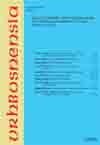Vjera u Markovu evanđelju, s posebnim osvrtom na vjeru zauzetu protiv uzetosti
FAITH IN MARK’S GOSPEL, WITH SPECIAL EMPHASIS ON FAITH WHICH INTERCEDES AGAINST PARALYSIS
Author(s): Marinko VidovićSubject(s): Christian Theology and Religion
Published by: Katolički bogoslovni fakultet
Keywords: faith; infidelity; lack of faith; discipleship; miracle; prayer; God almighty; theocentricity; Christocentricity; reliance
Summary/Abstract: At the present level of research it is generally accepted that the Gospels are believers’ writings, from faith to faith. The Gospels speak about faith narratively; in other words, as something that has a visible impact. In this type of narrative, it is not possible to define faith or express it unambiguously or reduce it to a common denominator. It must be viewed in different narrative units, which in addition to their real-life context have a literary context. The author of this article starts from the term “faith” in its verbal and noun form and then isolates contexts in which the concept of faith appears in Mark, noting that faith is usually found in scenes that describe Jesus’ miracles, his prayers, and places where he calls for prayer and teaches about prayer. The fact that Mark places faith in these contexts shows that faith is first of all a true relationship with God and that it manifests His almighty power in history. With this idea, Mark echoes the Old Testament concept of faith, where faith is submission to God. He relies on this ancient concept of faith, but introduces new ideas and new emphases. He stresses that faith is a reliance on God, but mediated by Jesus, His actions, words and teaching. For Mark, the theocentricity of faith is inseparable from Christocentricity. Faith has its contextual variables, but faithful behavior also has a constancy and this is: accepting the Kingdom; coming to Jesus; asking for help from Him and through Him from God; accepting and understanding His words and deeds; prayerfully addressing God, trusting that He, in Jesus, does what is humanly impossible; and finally totally imitating Jesus and His way. Mark clarifies these positive frames of faith through behavior that shows unbelief or insufficient faith. Faith is insufficient when it is based only on signs and wonders; when it looks and seeks only human security; when it is not attentive to the words of Jesus, and when it stays only at the level of wonder and awe that does not lead to Him who is the source of it. Infidelity is seen as a rejection of the person of Jesus and His realization of God’s plan; as misunderstanding caused by fear for the self and flawed expectation of God; as an escape from Jesus’s way; as a wrong perception of reality; as hardened hearts; as blind eyes and deaf ears; as poor memory of what has already been experienced; as thinking “by human, not by God”. True faith is following Jesus; walking after Him and accepting His death as God’s will. Before that kind of death, existential faith can be poured into true religion, confession of Jesus’ identity as the Son of God. As much as faith is a personal attitude and conviction of God’s action in history, true faith also has an ecclesial dimension, interceding for the troubles of other people.
Journal: Vrhbosnensia
- Issue Year: 2014
- Issue No: 1
- Page Range: 5-49
- Page Count: 45
- Language: Croatian

